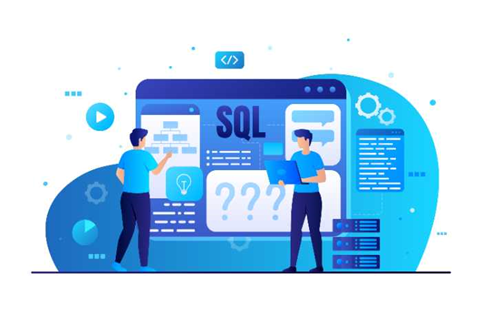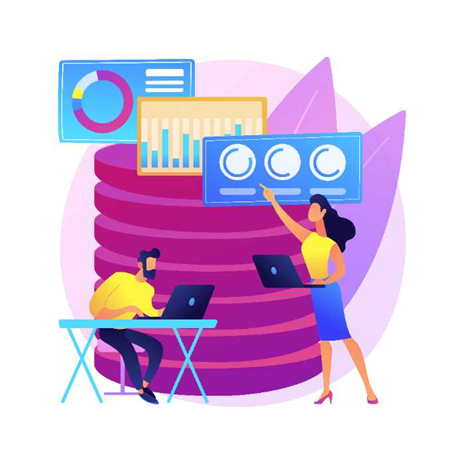Oracle vs. MySQL: Detailed Comparison & Uses for These Databases | MySQLDesigners
Oracle vs. MySQL: Detailed Comparison & Uses for These Databases
When it comes to databases, there are two names that always seem to come up: Oracle and MySQL. Both are incredibly popular relational database management systems (RDBMS), used by some of the biggest companies in the world.
So, which one is better? Well, that depends on your needs. We’ll take a detailed look at the difference between Oracle and MySQL, in terms of syntax and uses.
MySQL is an open-source relational database management system (RDBMS), while Oracle is a commercial RDBMS. Both systems use SQL (Structured Query Language) for querying and manipulating data.

Key differents between Oracle and MySQL in detail:
– MySQL is free to download and use, while Oracle requires a paid license.
– MySQL is open source, while Oracle is proprietary.
– MySQL uses a different storage engine for each table, while Oracle uses the same storage engine for all tables.
– MySQL is typically faster than Oracle, but this can vary depending on the application.
– Oracle is more scalable than MySQL.
– MySQL has better support for embedded applications, while Oracle has better support for enterprise applications.
– Oracle is more expensive to maintain than MySQL.
Uses and Advantages of Mysql:
MySQL is a popular choice for web applications, and it is used by some of the biggest names on the internet, including Facebook, Twitter, and YouTube. MySQL is known for its speed, reliability, and ease of use.
One of the biggest advantages of MySQL is that it is free to download and use. This makes it an attractive option for small businesses and startups who can’t afford the high cost of Oracle licenses. MySQL is also open source, which means that anyone can contribute to its development.
Another advantage of MySQL is that it uses a different storage engine for each table. This means that you can tailor the performance of your database to the needs of your application. For example, you can use a faster storage engine for frequently accessed data, and a slower storage engine for infrequently accessed data.
Drawbacks:
However, there are some drawbacks to using MySQL. One is that it is not as scalable as Oracle. This means that it may not be able to handle the same amount of data or traffic as Oracle. Another drawback is that MySQL has better support for embedded applications than enterprise applications. This means that it may not be the best choice for large businesses with complex data requirements.
Uses and Advantages of Oracle:
Oracle is a commercial RDBMS that is used by some of the biggest companies in the world, including banks, airlines, and government organizations. Oracle is known for its reliability, scalability, and security.
One of the biggest advantages of using Oracle is that it is more scalable than MySQL. This means that it can handle more data and traffic. Another advantage is that Oracle has better support for enterprise applications than MySQL. This means that it is a better choice for large businesses with complex data requirements.
Drawbacks:
However, there are some drawbacks to using Oracle. One is that it is more expensive to maintain than MySQL. This is because Oracle requires a paid license, while MySQL is free to download and use. Another drawback is that Oracle is proprietary, which means that onlyOracle can make changes to the code. This can make it difficult to customize Oracle to your specific needs.
Syntax
When it comes to syntax, both Oracle and MySQL use similar commands. However, there are some key differences to be aware of. For example, in Oracle, you must specify the table name before the column name when inserting data, while in MySQL you do not need to do this. Additionally, Oracle uses “;” (semicolon) as a statement terminator, while MySQL uses “;” (semicolon) only for multiple-line queries.
Oracle vs. MySQL: How to Decide
When deciding between Oracle and MySQL, there are a few things to consider.
First, think about your budget. If you can afford the high cost of Oracle licenses, then Oracle may be a better choice for you. However, if you’re on a tight budget, then MySQL may be a better option.
Second, think about your data requirements. If you need a scalable database that can handle large amounts of data, then Oracle is a good choice. However, if you don’t need as much scalability, then MySQL may be a better option.
Third, think about your application requirements. If you need enterprise-level support, then Oracle is a good choice. However, if you need support for embedded applications, then MySQL is a better option.

If you’re still not sure which database to choose, contact us today and we’ll help you make the best decision for your specific needs.
